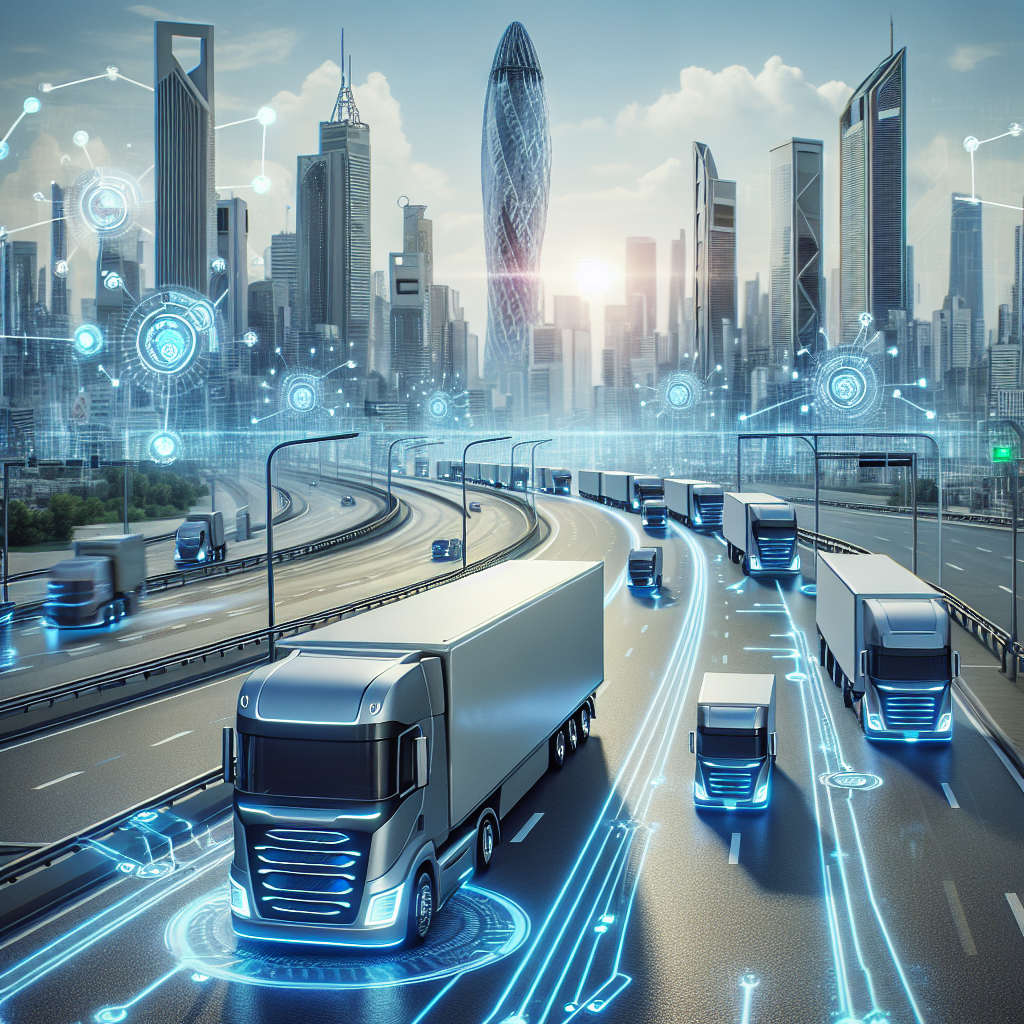The Future of Freight Transportation with AI
The freight transportation industry is currently undergoing a significant transformation, driven by advancements in artificial intelligence (AI) technology. AI is revolutionizing the way goods are transported, making the process more efficient, cost-effective, and environmentally friendly. From autonomous vehicles to predictive analytics, AI is reshaping the future of freight transportation in numerous ways.
Autonomous Vehicles
One of the most prominent ways AI is impacting freight transportation is through the development of autonomous vehicles. Self-driving trucks and drones are being used to transport goods more efficiently than ever before. These vehicles are equipped with AI technology that allows them to navigate roads, avoid obstacles, and deliver goods safely and on time.
Autonomous vehicles have the potential to reduce operating costs for freight transportation companies by eliminating the need for human drivers. They can also increase the speed and efficiency of deliveries, as they can operate around the clock without the need for rest breaks.
In addition to trucks and drones, autonomous ships are also being developed to transport goods across oceans. These self-navigating vessels can reduce shipping times and costs, as well as minimize the environmental impact of freight transportation.
Predictive Analytics
Another way AI is transforming freight transportation is through the use of predictive analytics. By analyzing vast amounts of data, AI algorithms can predict future trends in supply chain management, allowing companies to optimize their operations and reduce costs.
Predictive analytics can help freight transportation companies anticipate demand, optimize routes, and improve inventory management. This can lead to more efficient operations, reduced waste, and increased customer satisfaction.
AI algorithms can also help companies identify potential risks and opportunities in their supply chains, allowing them to make informed decisions and adapt to changing market conditions. This can help companies stay competitive in an increasingly dynamic and complex global marketplace.
Environmental Impact
AI is also playing a key role in reducing the environmental impact of freight transportation. By optimizing routes, reducing fuel consumption, and minimizing emissions, AI technology can help companies operate more sustainably.
For example, AI algorithms can analyze traffic patterns and weather conditions to find the most fuel-efficient routes for trucks and ships. This can reduce carbon emissions and lower operating costs for freight transportation companies.
In addition, AI-powered predictive maintenance systems can help companies keep their vehicles and equipment in optimal condition, reducing the risk of breakdowns and minimizing downtime. This can lead to more reliable operations and reduced environmental impact.
FAQs
Q: How will AI impact the job market in the freight transportation industry?
A: While AI has the potential to automate many tasks in the freight transportation industry, it is unlikely to eliminate the need for human workers entirely. Instead, AI technology is likely to create new job opportunities in areas such as data analysis, software development, and maintenance of autonomous vehicles.
Q: What are the potential challenges of implementing AI in freight transportation?
A: One of the main challenges of implementing AI in freight transportation is the high cost of developing and deploying AI technology. Companies may also face regulatory hurdles and public skepticism regarding the safety and reliability of autonomous vehicles. Additionally, there may be concerns about the impact of AI on jobs and the workforce.
Q: How can companies prepare for the future of freight transportation with AI?
A: Companies can prepare for the future of freight transportation with AI by investing in AI technology, training their employees in new skills, and adapting their business models to take advantage of AI capabilities. By embracing AI technology, companies can improve their operations, reduce costs, and stay competitive in a rapidly changing industry.
In conclusion, the future of freight transportation with AI is bright and promising. Autonomous vehicles, predictive analytics, and environmental sustainability are just a few of the ways AI is reshaping the industry. By embracing AI technology, companies can optimize their operations, reduce costs, and improve their environmental impact. The future of freight transportation with AI is fast approaching, and the possibilities are endless.

